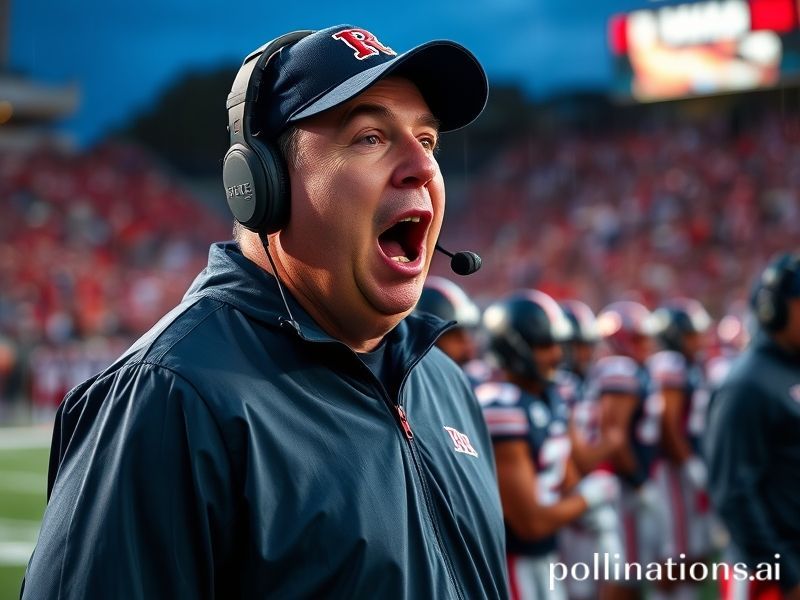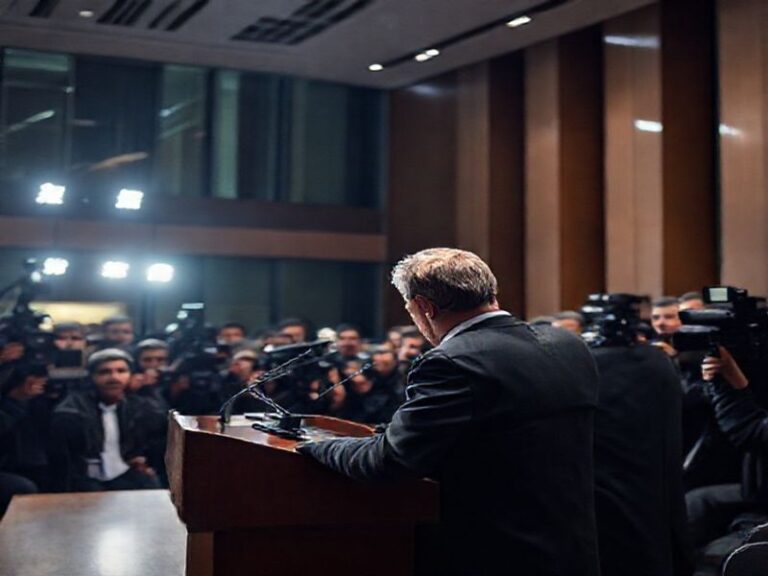Greg Schiano Goes Global: How a Middling Football Coach Accidentally Became an International Metaphor
The Strange Afterlife of Greg Schiano, or How One American Football Coach Became the World’s Accidental Diplomat
By Our Man in the Neutral Zone
Somewhere between the hash marks of a soggy Rutgers practice field and the marble corridors of FIFA’s Zurich bunker, Greg Schiano has quietly become the planet’s most improbable export. To the average European, the name still sounds like an off-brand Parmesan; to the Asian sports-data market it’s a trending search term in three alphabets; to the Middle Eastern sovereign-wealth fund currently flirting with buying an NFL franchise, it’s a bargaining chip dressed in a headset.
Let’s back up. Schiano—once the defensive savant who turned Rutgers from a commuter-school punchline into a quasi-respectable Big East irritant—has been fired, rehired, nearly-Tennessee’d, de-Tennessee’d, and finally resurrected by the same New Jersey swamp he once fled. In most countries this would qualify as simple regional farce. But because American football is now streamed in 190 territories and because its coaching salaries rival the GDP of island nations, Schiano’s comings and goings carry geopolitical weight. When Rutgers announced his second coming in 2019, the offshore gambling houses of Macau moved the line on the Scarlet Knights’ season win total; oil traders in Singapore noted a 0.3 % bump in regional diesel futures because, apparently, nothing says economic optimism like a 2-10 team hiring a man who once lost to Cincinnati by five touchdowns.
Internationally, Schiano’s value lies less in wins than in narrative. The man embodies the global middle-manager’s dream: fail upward, collect buyouts, then renegotiate like a Greek finance minister. Brussels bureaucrats see him as a case study in institutional amnesia. Tokyo efficiency gurus cite his “chop” tackling drills as proof that Americans will militarize anything, even hugging. Meanwhile, Nigerian scam artists have reportedly cloned his email signature to fleece European soccer clubs; the scam promises “elite American defensive secrets” in exchange for iTunes gift cards—proof that Schiano’s brand now travels faster than his actual playbook.
Dark comedy arrives when you realize Schiano’s signature tactic—the “Buccaneers kneel-down blitz,” a 2012 stunt so unsportsmanlike it united the entire NFL in disdain—has become a metaphor for global trade negotiations. Picture it: China and the U.S. eyeing each other across the 40-yard line of the Taiwan Strait, one side taking a gentlemanly knee, the other sending seven angry linebackers at their dental work. Somewhere in Geneva, a WTO delegate watches the tape and mutters, “Yes, that’s exactly how we handle tariffs.” Even Vladimir Putin, a judo man at heart, reportedly asked his advisors if the Schiano maneuver could be adapted for energy pipelines. (Answer: da, but only if the pipeline is offsides.)
Of course, the coach himself remains endearingly provincial. Ask him about the wider impact and he’ll pivot to “scooping and scoring,” which sounds either like ice-cream strategy or Cold War espionage. But that provincialism is precisely why the world watches. In an era when every public figure must moonlight as a global influencer, Schiano’s refusal to brand beyond New Brunswick is refreshingly subversive—like discovering a hermit monk who accidentally holds the nuclear codes.
The broader significance? Schiano illustrates the final triumph of content over context. The games still happen in Piscataway, population 56,000, yet the analytics are parsed in Seoul, the memes minted in Lagos, the bets hedged in London. The planet has learned to monetize American provincialism at scale; Schiano is just the latest export, shrink-wrapped and drop-shipped like any other commodity. And should Rutgers somehow reach the Rose Bowl, expect the Singapore Strait to light up with fireworks and the Swiss franc to wobble—because nothing terrifies global markets like the prospect of a Schiano victory parade through Secaucus.
In short, Greg Schiano has achieved what career diplomats only dream of: uniting the world in shared bewilderment. Wherever two or more are gathered—be it a Lagos cyber-café or a Davos chalet—someone is currently Googling “Why is Schiano still employed?” That, dear reader, is soft power in the 21st century: not nukes, not navies, but a middle-aged man in a windbreaker whose greatest contribution to international relations may be teaching the globe how to spell “Rutgers.”







